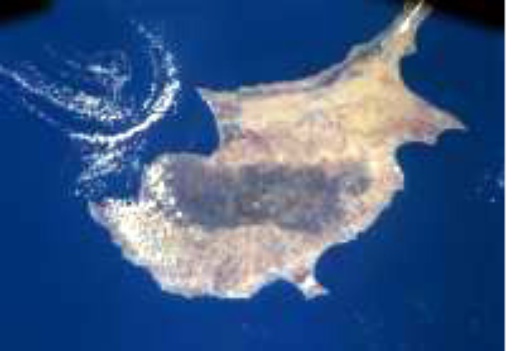Shame on Cyprus for Wasting a Great Opportunity
Published on
Translation by:
 ruth ahmedzai
ruth ahmedzai
On 24th April, the population of Cyprus will cast its vote on reunification. Despite international efforts, everything is pointing to the persistence of the “green line” that has divided the island for 30 years. Are the prospects of the EU really not enough to unite Cyprus?
 The Greeks have plenty of reasons to laugh. “We’ve got nothing to lose. We can reject it and still join the EU!” smirks a Greek journalist, aligning himself with the Greek Cypriot leader, Tassos Papadopoulos, who appealed to his people to decline the UN proposal for the unification of the Mediteranean island. On this point, however, the two political leaders of the two populations are in fact united, because the head of the Turkish part, Rauf Denktash, has also decided to thwart a “yes” to the unification campaign, as he fears “a future full of risks” for the Turkish minority. The electorates on both sides seem to have made up their minds against it: recent surveys forecast a comfy 76% rejection of the proposal in the South and even the once certain Turkish approval is going through a shaky patch.
The Greeks have plenty of reasons to laugh. “We’ve got nothing to lose. We can reject it and still join the EU!” smirks a Greek journalist, aligning himself with the Greek Cypriot leader, Tassos Papadopoulos, who appealed to his people to decline the UN proposal for the unification of the Mediteranean island. On this point, however, the two political leaders of the two populations are in fact united, because the head of the Turkish part, Rauf Denktash, has also decided to thwart a “yes” to the unification campaign, as he fears “a future full of risks” for the Turkish minority. The electorates on both sides seem to have made up their minds against it: recent surveys forecast a comfy 76% rejection of the proposal in the South and even the once certain Turkish approval is going through a shaky patch.
The Swiss model
The plan currently being debated - revised for the fourth and final time after the failure of talks in Bürgenstock, Switzerland by Kofi Annan, intervening between the high representatives of the two governments – no longer seems able to dispel the central concerns of the two national groups. The Turkish fear that their communities will be swamped by masses of Greeks returning to settle and are therefore demanding restrictions on the freedom of movement. The Greeks are about as impressed with the idea of maximum quotas of returning settlers imposed at 18% of the population as they are about the continued and unreduced Turkish military presence – until Turkey too one day joins the EU. Besides this, the plan proposes that Cyprus be governed as a confederation in the style of Swiss cantons. The leadership would be made up of a nine-seat Presiding Council with – reflecting the Greek population’s two-thirds majority – six Greek and three Turkish members.
The constant exception
If just one of the two communities actually rejects the plan, the island will remain divided. With the Greek part of Cyprus acceding to EU membership on 1st May and the Turkish administration of the North not officially recognised, it will have come to the ironic situation where a part of the EU territory is, in the eyes of international law, under Turkish occupation. Even if the high representative of the EU for foreign and security policy, Javier Solana, in his interview with café babel in February, doesn’t “think it’s useful to look at the issue in this way”, Cyprus will be grossly contravening current EU law, at least temporarily. Is Cyprus going to become a constant exception to the rules?
That’s certainly what it looks like at the moment. Looking around, you get the impression that nobody really wants to take full stock of the consequences. Annan has stuck to his friendly exhortations, “let’s use this chance for peace in a united Cyprus”; while the EU Enlargement Commissioner, Günther Verheugen, proclaims mysteriously and threateningly, “there won’t be another chance like this for a very long time.”
It is a realistic concern that after the referenda and EU accession – in whatever form it takes - the Cyprus question will in fact disappear from the sights of world politics for some time. The EU seems to have resigned itself to taking up the matter again only in the context of negotiations for Turkish accession and seems ready to accept Cyprus’ special status for the time being. Cyprus will probably not enjoy this much attention in its own right any time soon. Perhaps, if they do reject Annan’s plan, the Cypriots really are throwing away their last chance of a solution that isn’t enforced on them from the outside.
Translated from Schade Zypern, Chance vertan?


